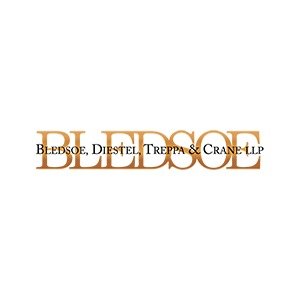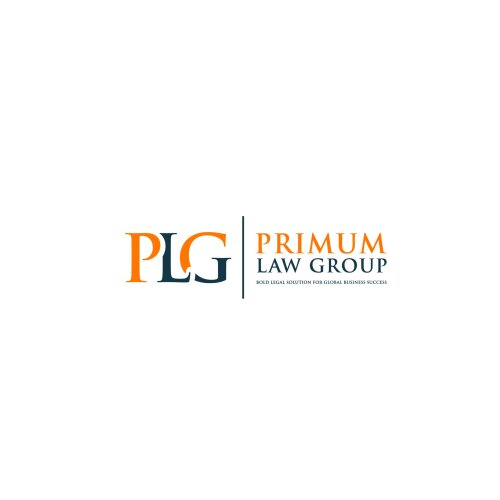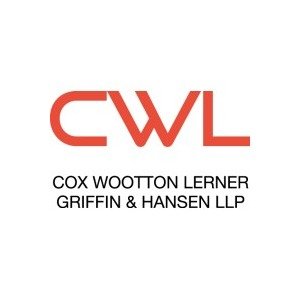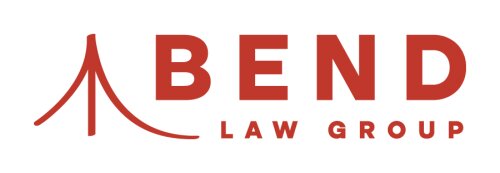Best Sanctions & Export Controls Lawyers in San Francisco
Share your needs with us, get contacted by law firms.
Free. Takes 2 min.
List of the best lawyers in San Francisco, United States
About Sanctions & Export Controls Law in San Francisco, United States
Sanctions and export controls law refers to the regulations and legal requirements governing the export, re-export, and transfer of goods, technology, services, and information from the United States to foreign countries or entities. These laws are designed to protect national security, support foreign policy, prevent proliferation of sensitive technologies, and maintain compliance with international agreements. In San Francisco, a hub for international business and technology, sanctions and export controls are particularly relevant for companies operating in global markets, especially those involved in technology, finance, and logistics.
Why You May Need a Lawyer
Legal assistance with sanctions and export controls is often necessary because these regulations are highly complex, constantly changing, and carry significant penalties for non-compliance. Common situations where you may require legal help include:
- Conducting business with international partners or customers subject to U.S. sanctions.
- Exporting or re-exporting technology, software, or goods that may be classified as controlled items.
- Receiving inquiries or audits from U.S. government agencies such as the Office of Foreign Assets Control (OFAC) or the Bureau of Industry and Security (BIS).
- Responding to potential violations, investigations, or enforcement actions regarding sanctions or export controls.
- Drafting or reviewing compliance programs, policies, and employee training materials.
- Seeking licenses or authorizations to export or engage with sanctioned countries, individuals, or entities.
An experienced attorney can help you interpret the laws, mitigate risks, and develop a comprehensive compliance strategy tailored to your business operations in the San Francisco area.
Local Laws Overview
Sanctions and export controls in San Francisco are primarily governed by federal laws and regulations, including the International Emergency Economic Powers Act (IEEPA), the Export Administration Regulations (EAR), and the regulations administered by OFAC. While California and the City of San Francisco may have additional ordinances affecting international trade or business practices, most enforcement and requirements stem from federal authority.
San Francisco’s diverse economy and strong international ties make it essential for businesses and individuals to pay close attention to sanctions lists, dual-use technology controls, and end-user restrictions. Local companies must also be aware of state and local initiatives promoting ethical international trade practices, transparency, and human rights due diligence.
Violations can result in hefty civil and criminal penalties, reputational harm, and suspension or denial of export privileges, emphasizing the importance of thorough compliance in the San Francisco business environment.
Frequently Asked Questions
What are U.S. sanctions and who enforces them?
U.S. sanctions are legal restrictions on trade or financial transactions with certain countries, individuals, or entities, usually enacted for national security or foreign policy reasons. The Department of the Treasury’s Office of Foreign Assets Control (OFAC) is the primary enforcement agency.
What are export controls and what items are subject to control?
Export controls restrict the transfer of specific goods, technologies, and software to foreign countries or nationals. The Department of Commerce’s Bureau of Industry and Security (BIS) oversees these regulations, primarily under the Export Administration Regulations (EAR). Common controlled items include encryption software, advanced electronics, and defense-related technologies.
Does my San Francisco-based company need an export license?
It depends on what you are exporting, where it is going, the end-user, and the intended use. Many products require no license, but controlled items, certain destinations, or sanctioned parties may trigger licensing requirements. An attorney or compliance professional can help you conduct a “deemed export” analysis.
How do I know if a person or company is on a sanctions list?
OFAC and other agencies maintain public lists, such as the Specially Designated Nationals (SDN) List. Businesses should screen partners, customers, and vendors against these lists before engaging in transactions.
What are the penalties for violating sanctions or export controls?
Penalties can include significant monetary fines, civil or criminal liability, forfeiture of goods, imprisonment, loss of export privileges, and reputational damage.
Are there exemptions or general licenses under U.S. sanctions?
Yes, certain activities may qualify for general licenses or exemptions, allowing some transactions that would otherwise be prohibited. These are specific and require careful analysis.
Can individuals be held liable for violations?
Yes. Both companies and individuals, including employees and executives, can be held responsible for violations of export control or sanctions regulations.
How often do export control rules change?
Export control and sanctions laws change frequently, especially in response to global conflicts or foreign policy developments. It is important to stay updated and review your compliance programs regularly.
What should I do if I discover a possible violation?
You should consult with legal counsel immediately, consider suspending potentially illegal activities, and evaluate options for voluntary self-disclosure to authorities, which can mitigate penalties.
Are there local resources in San Francisco for compliance help?
While most resources are federal, San Francisco offers international trade organizations, legal clinics, and trade associations that can provide guidance or referrals.
Additional Resources
If you need further information or assistance, consider these resources:
- U.S. Department of the Treasury - Office of Foreign Assets Control (OFAC)
- U.S. Department of Commerce - Bureau of Industry and Security (BIS)
- San Francisco Center for International Trade Development
- California Chamber of Commerce International Affairs Department
- Local law firms with international trade and compliance practices
- Small Business Development Center (SBDC) in San Francisco
- International Bar Association or American Bar Association - Export Controls and Sanctions section
Next Steps
If you believe you need legal help with sanctions or export controls in San Francisco, consider the following steps:
- Collect all relevant documents, transaction details, and correspondence related to your international business activities.
- Identify the key issues or questions you have regarding compliance, licensing, or enforcement risks.
- Contact a qualified attorney or compliance professional with experience in sanctions and export controls law.
- Ask about the attorney’s experience with businesses in your industry and familiarity with federal and local considerations.
- Keep up to date with current developments in export control regulations and review your internal policies regularly.
- If faced with a possible violation or investigation, seek legal counsel before communicating with authorities or making disclosures.
Navigating sanctions and export controls can be challenging, especially in a dynamic and globally connected city like San Francisco. Professional legal guidance ensures your business stays compliant and protected.
Lawzana helps you find the best lawyers and law firms in San Francisco through a curated and pre-screened list of qualified legal professionals. Our platform offers rankings and detailed profiles of attorneys and law firms, allowing you to compare based on practice areas, including Sanctions & Export Controls, experience, and client feedback.
Each profile includes a description of the firm's areas of practice, client reviews, team members and partners, year of establishment, spoken languages, office locations, contact information, social media presence, and any published articles or resources. Most firms on our platform speak English and are experienced in both local and international legal matters.
Get a quote from top-rated law firms in San Francisco, United States — quickly, securely, and without unnecessary hassle.
Disclaimer:
The information provided on this page is for general informational purposes only and does not constitute legal advice. While we strive to ensure the accuracy and relevance of the content, legal information may change over time, and interpretations of the law can vary. You should always consult with a qualified legal professional for advice specific to your situation.
We disclaim all liability for actions taken or not taken based on the content of this page. If you believe any information is incorrect or outdated, please contact us, and we will review and update it where appropriate.

















